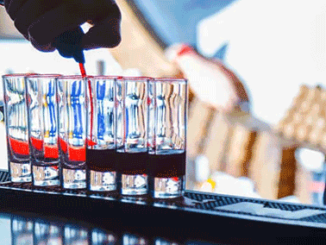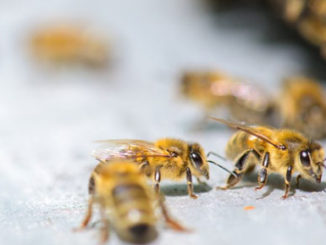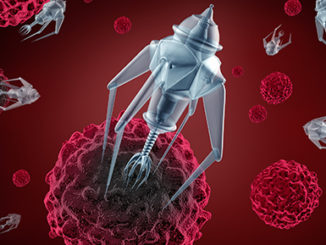Articles that explore the ways in which epigenetic drugs may be used to stave off cancer and other diseases. Additional articles cover topics related to drug abuse, rehab, and addiction.
In recent years, the popularity and availability of cannabis has grown significantly, with various consumption methods like edibles gaining traction. However, alongside this trend, there has been a worrisome increase in cannabis use among pregnant women. Unfortunately, our understanding of the detailed effects of using cannabis during pregnancy on the developing child remains limited. Because normal fetal development relies on the crucial process of epigenetic regulation and gene expression modification, it has been suggested that studying the molecular changes linked [more…]
Opioid misuse has led to an unprecedented crisis, with more than 3 million people in the United States experiencing dependence or addiction (1). Despite the success of in-patient rehabilitation programs, relapse rates are approaching 90%, creating a critical need for effective relapse prevention strategies (2). To address this, researchers from Boston University and Icahn School of Medicine asked whether long-term changes in gene transcription occur after opioid withdrawal. Their analyses identified a novel epigenetic mechanism involved in difficult withdrawal symptoms [more…]
Alcoholism is a disease that can affect anyone regardless of age, gender, ethnicity, or body type. But, dependence on alcohol seems to vary from person to person. In some, it can develop quickly and aggressively, while in others, it may emerge over a longer period of time. What makes one more or less susceptible to alcohol is not fully understood. Yet, the reasons are credited to both environmental and biological factors, which are also implicated in epigenetic regulation. In some [more…]
In 2020, the FDA approved Epizyme’s drug tazemetostat (Brand name: Tazverik) to treat a rare type of solid tumor called epithelioid sarcoma. Tazemetostat targets the epigenetic enzyme EZH2, which is strongly linked to several cancer types. Now, Epizyme is seeking accelerated approval for tazemetostat to treat a common form of blood cancer called follicular lymphoma, and has clinical trials running for several additional cancer types. Cancer is a genetic disease that causes unrestrained cell proliferation. Typically, chemotherapies treat cancer by [more…]
Addiction is an incredibly powerful force that affects many people all over the world. It’s a debilitating, lifelong disease that is difficult to combat. Cocaine addiction is a particularly challenging obstacle because it’s an immediately rewarding drug, delivering a high quick and easy. This trait, paired with drug-associated cues such as location, experience, or certain people is what makes the possibility of relapsing so likely for addicts. But what if there were other factors on a genetic level that cause [more…]
Alcohol is likely the most used and abused substance in the world. It’s fine to have a few cocktails or beers per week, but only for those that are of the legal drinking age. Underage drinking is a consistent issue faced in the United States today. According to the CDC, kids ages 12-20 consume about 11% of all alcohol in the US, and this can be problematic as it is often done in a bingeing manner, rather than a causal [more…]
Marijuana has been the topic of much recent debate across the United States, and its legalization has undoubtedly gained some ground. Almost all states in the US have legalized marijuana in some capacity, whether it be for medicinal or recreational purposes which could have a positive effect on both medicine and the economy. Cannabis has provided some relief for patients suffering from various sicknesses like chronic pain, depression, PTSD, anxiety, and even HIV/AIDs and cancers. As the use of marijuana [more…]
Drinking alcohol on a regular basis, even in moderation, can cause damage to the brain. Physical activity, however, has been reported to protect cognitive function. So, could exercise counteract drinking’s harmful effects on the brain? In a recent study conducted at the University of Louisville School of Medicine in Louisville, KY, a group of researchers decided to tackle this question by taking an epigenetic look at how alcohol and exercise affect the brain. Specifically, they looked at alcohol-induced epigenetic and [more…]
Bees, like humans, have been known to act…well, buzzed when given cocaine. And just like us, they can also become addicted to it…even suffer from withdrawal symptoms when the drug is taken away. It’s this similarity in altered behavior to us that makes them a great model system to study when investigating the effects of cocaine use. As it just so happens, researchers from Norway and Australia recently conducted a study using honey bees to investigate cocaine dependency. Not the [more…]
Epigenetic drugs designed to fight cancer might actually be used against many viruses as well. A recent study published in the American Society for Microbiology shows that some pharmaceuticals that act epigenetically have the power to be used as broad spectrum antivirals. Specifically, the researchers looked at histone methyltransferases EZH2/1 inhibitors which can help fight against cancer. Numerous DNA viruses, such as herpes simplex virus (HSV), are involved in epigenetic regulation which determines productive infection, persistence, and latency. Modulation to [more…]











